"Komsomolskaya Pravda" begins a new exciting series. We will introduce readers to graduates Kaliningrad region who brilliantly passed the unified state exams and also with their teachers
Photo: Viktor GUSEYNOV
Change text size: A A
Each of them answered the questions of the proposed questionnaire, where there is an answer to main question future generations - what to do to pass the exam for all 100? Our first heroes are yesterday's schoolgirl Yulia Nikonova and her Russian teacher
“I do not rule out that I will leave for Europe”
Yulia NIKONOVA, a graduate of the school of the Zheleznodorozhny village of the Pravdinsky district, passed the Russian language with 100 points:
1. When did you start preparing for the exam? In what class?
Solving tests - from the beginning of the 11th grade.
2. What, in your opinion, is the most difficult thing in the Unified State Examination in the Russian language?
The hardest part is part C, the essay. I spent all the allotted time - three and a half hours - on the answers. Trial USE I passed 98 points in Russian. I assumed that I would pass the USE directly with 90 points. To say that I was sure that I would give a hundred is dishonest. I passed other exams like this: mathematics - 74 points, social studies - 85 points.
3. What do you need to do to pass the exam with 100 points?
Consistently study well at school for all 11 years. This is the first. And the second is regular self-training. It is not realistic to prepare for the exam in one year.
4. Could it be written off when passing the exam?
I wrote Russian in Pravdinskaya high school. It was impossible to write off there. Very strict order. Behind us all - an eye and an eye.
I plan to receive higher education at the Kant Baltic Federal University. I am interested in finance and economics. Do I see my future in Russia? Complex issue. I do not exclude for myself the option that I will build my life in Europe.
“Let's leave our Yulia for the second year”
Valentina Sergeevna NAREZHNAYA, teacher of Russian language and literature at the Zheleznodorozhny school:
1. Describe a hundred-pointer.
I say absolutely sincerely: Yulia is a universal student. She is a participant in numerous olympiads, in which she necessarily received high results. She is a hard worker, but not a hard worker. I am very glad that I talked with this girl, starting from her 5th grade. Yulia always went for the top five, she always knows a little more than is required. And on May 27, sending her to the Russian exam, I got on the bus and said: “Julia, we all expect 100 points from you!”. She finishes school with a gold medal. And I have a feeling that this brilliant result was very important to her. She seemed to want to prove to herself that gold medal- it's not a coincidence. This is the result of a huge work, multiplied by her abilities.
I did not conduct any special classes with Yulia. Everyone who wanted to stay after the lessons, and we trained, sorted out tasks. Julia did not miss a single such lesson. No one! Although it would seem that she already knows. But that's the kind of person she is...
I know that Yulia wants to study economics. I think that this girl, whatever she does, everything will be fine. And I'm a little jealous of the teachers who are going to get to know this man. You know, among our teachers at school there is a joke: “Let's leave our Yulia for the second year” ...
2. Do you have own observations Which of the students can pass the exam with 100 points? What are these children? Can someone who has studied for a solid "3" for all 11 years be lucky?
These are children like Yulia Nikonova. Knowing, always striving to learn something new, disciplined, responsible, able to concentrate. Anyone who studied for a solid "3", in my opinion, can pass this exam one hundred percent in one case - if he cheats.
3. Will the fact that your student passed the exam with 100 points affect the school's rating? Do you hope to receive an award for this high result? How did other graduates of your school pass the Unified State Examination in Russian?
I am very, very glad that our school, in the village of Zheleznodorozhny, produces such wonderful person. I think that this result will definitely be reflected in the rating of the school. As for the award... I can't say anything. But I have a deep sense of satisfaction that our school is completing this year academic year with such great results. In the class where Yulia studied, all the threes confirmed the threes, the good students confirmed the fours, and Yulia - her confident “five”. No one got a double. That is, here is my own pedagogical objectivity very pleased.
4. What would you change in the USE system?
The first thing that comes to mind is a theory that can be conditionally called "+1 point". Children often come to the 10th grade to study, who do not have the ability to know the Russian language, mathematics by five or four. I'm talking about hardworking children, honest children. But that's not given to them! And there are times when such a child, when passing the exam, lacks only one point to the "troika". Nevertheless, in such cases it is necessary to give it one point. Since the exam is a difficult exam, it is a huge stress for children. For such children, probably doubly difficult.
5. Have you encountered the facts of cheating on the exam?
No, because the organizer of the exam was not this year.
Preparing for an exam is like preparing a dish for a chef: to get an impressive result, you need to take care of the necessary ingredients, write a detailed recipe, trust your intuition in time, and be able to rely on assistants. The current first-year student, and most recently a graduate of grade 11, shares her recipe for preparing for the exam for 100 points.
Diana Chochieva
100 points in history and English language; 93 points in Russian. Currently studying at St. Petersburg State University.
Step 1.
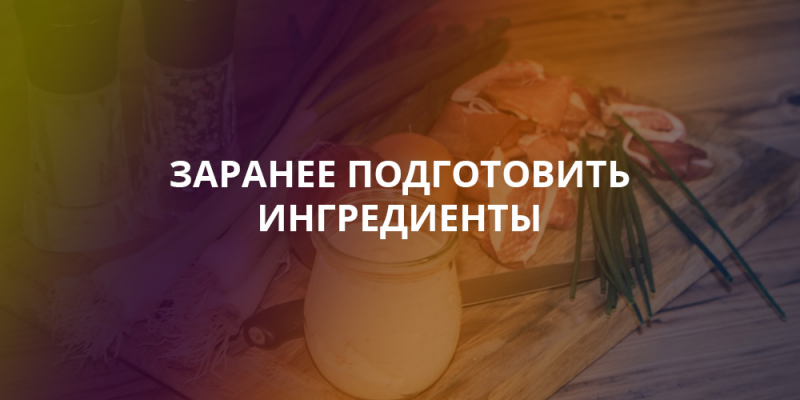
I decided to focus on preparing for the exam in history and English, since at school they were going to prepare us for the exam in Russian.
I started preparing for history on my own at the end of the ninth grade. I purchased various benefits to prepare for the exam and in the summer I just tried to outline paragraphs and learn dates.
It turned out to be quite difficult - I had many questions and incomprehensible topics. I tried to learn absolutely everything, even though it was unrealistic, simply because, due to ignorance USE requirements I was afraid to miss something important. Therefore, in the 10th grade, after discussing everything with my parents, I decided to enroll in the USE courses, which were held once a week. After that, my preparation became more effective, as there was already an awareness of what exactly I need to learn, which dates I definitely need to remember.
Due to the heavy workload at school at the end of the 10th grade, I decided to suspend my preparation and focus on school final works. In the summer before 11th grade, I did a review of dates that I had studied before. In the 11th grade, I decided to go to the same center to prepare for the Unified State Examination in English, and study history with a tutor, since I already had some knowledge, and some topics had not yet been completed.
Step 2
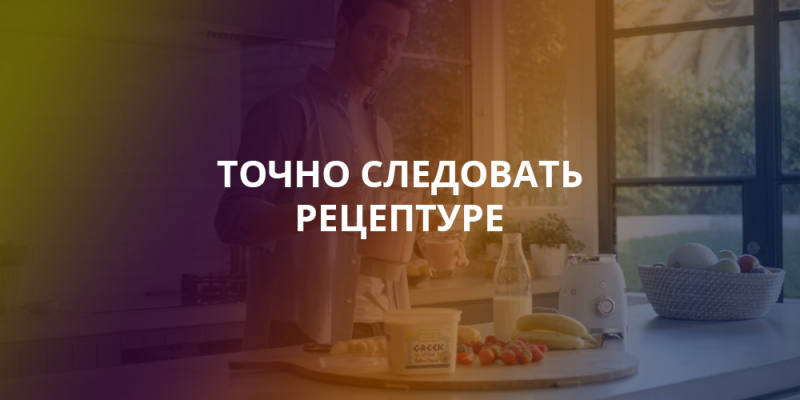
There are a lot of pitfalls at the exam that you need to know about in advance in order to successfully pass it. Gotta be ready for certain types tasks and certain standards of response, ignorance of which will entail the loss of quite a large number points. On the USE courses I was very clearly explained what I need to be ready for in the exam, and what I can not be afraid of. The teachers with whom I studied are included in the verification commission, so every year they pass certification at the FIPI.
I constantly heard from many acquaintances that teachers bombard them with "a bunch of unnecessary information." I don’t know how true this is, but in the courses I was told only the most necessary things. Yes, there was a lot of material, I had to study a lot, but no one said that it would be easy, but at the exam I was completely confident in my knowledge.
Step 3
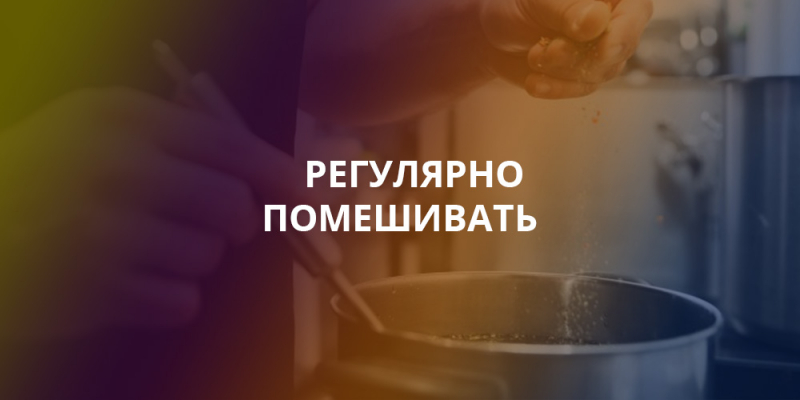
I studied English and history once a week. The rest of the days I did homework in these subjects and completed standard USE assignments. I decided to go to the preparation for the exam in English in the 11th grade because I studied at school with in-depth study English, and my language level was already high enough to pass the exam well. But teachers at school do not know the intricacies of design, the main catches and features of tasks. current year. I decided to go to the center in order to prepare on all fronts and feel full confidence, since admission to a university is at stake and you don’t want to lose a year because of stupid mistakes.
On the days when I did not have classes in the courses, I did my schoolwork to the maximum homework to free up an evening after the course for relaxation or preparation for the exam. Once or twice a month, I set aside a day completely free from study and just rested to give my body a break.
Step 4
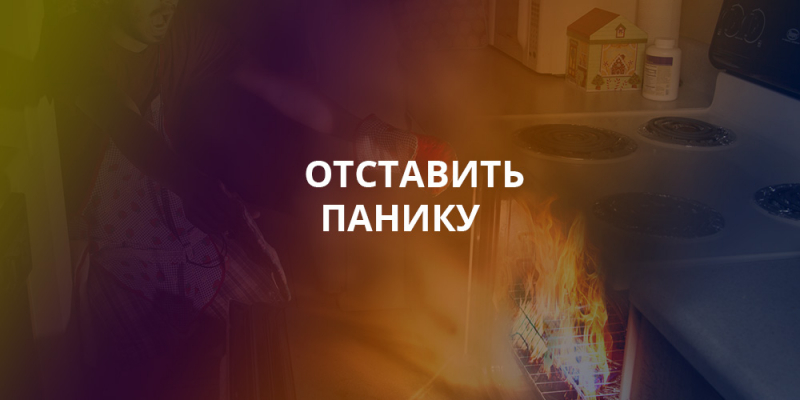
If I say that I did not experience any anxiety before the exam, it would not be true. But I tried to relax as much as possible under those conditions and just write what I know.
At the exam, we were led through metal detectors. I didn't feel any discomfort from it. And I took the cameras quite calmly during the exam. I managed to abstract from this, because in the center we went through a complete analogue twice a year this USE, where they took our phone away from us and made sure that we did not write off. This is a great workout, so during the exam itself I was in a familiar atmosphere and the stress did not knock me down.
Step 5
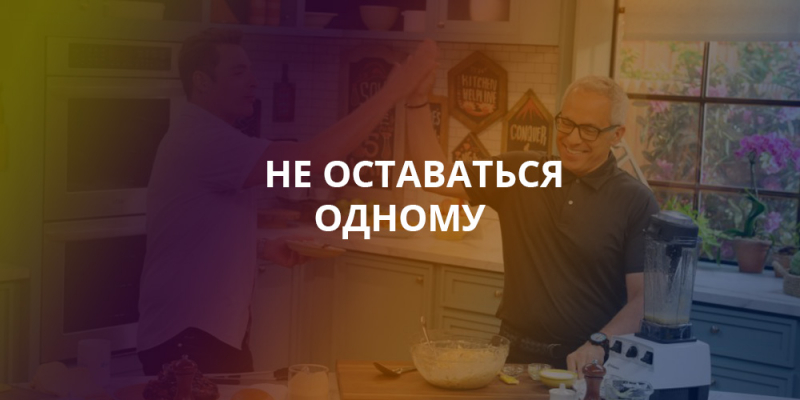
It seems to me that every parent hopes for the high results of their child. I am very grateful to my parents for their support, for the fact that they did not put pressure on me, but were confident in my abilities. Even when it was hard for me to continue, when I thought that all this preparation would not bring me the desired results, they always found the right words to cheer me up and not let me stop halfway, which I would later regret very much.
Step 6
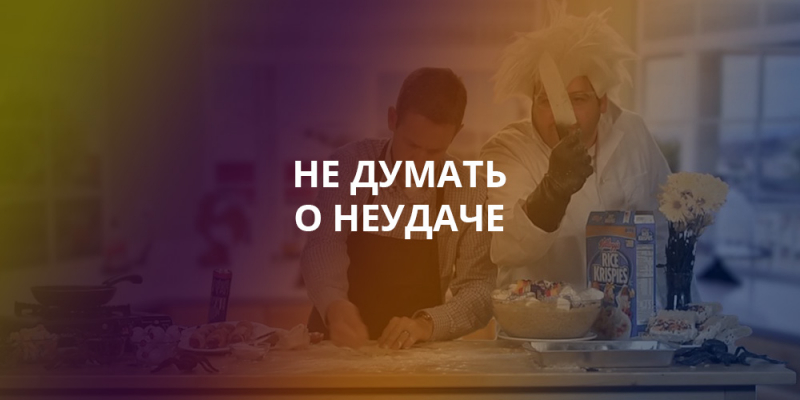
Less thinking and more action! This can help both in preparing for the exam, and in general in studies. If something doesn’t work out for us, we often begin to delve into ourselves, look for flaws, delve more and more into thoughts about our shortcomings and imperfections, and then simply plunge into a state where we no longer want to continue, because, according to our opinion, and so nothing comes out. We must overcome ourselves and go to our goal, no matter how difficult it may be.
Sometimes I even tried to load myself more so as not to think about what would happen if I didn’t enter, if I failed the exam at all. It seems to me that everyone who has been preparing for exams has come across these thoughts. We must try to get them out of our heads, and if it doesn’t work out, and you start thinking only about an unsuccessful result, then look for support from your parents and friends, and you will definitely feel better.
It's hot at the universities. There is a competition for applicants. And this competition, as we know, is held on the basis of the results of unified state examinations. How many scandals were around the exam. How much was a scam. Krali exam tickets, teachers put down the answers. Signals were coming from everywhere. Now they are few. Set up exams. There is no scam. Well, certainly less than a few years ago.
But here is a new scandal in Adygea. A graduate of one of the schools, an excellent student, right at the presentation of gold medals, said that her classmate received the medal undeservedly. And she was given a medal because of the pull - her mother heads the district education department. I don't know why you need to do something like this. It's in Soviet time the medal gave the right to enter almost any university without competition. But now something is not so, there are practically no benefits. Then why? Only hurt children.
Applicants of a prestigious Moscow university bring to the commission USE results. Passing points: these are tomorrow's humanities students.
And, it seems like, no one lowered the requirements for students, and it’s not to say that schools suddenly began to churn out hundreds of “own Newtons”. But the number of medalists breaks all records. In Karachay-Cherkessia, for example, every fifth graduate has an honors student.
AT school medals for a long time there is nothing precious. Silver and gold medals are made of brass. And what are the medalists themselves worth? Big question.
“Of course, it’s a shame when a person stands on the stage who has not told a single lesson, not a single answer for the whole year. And by a happy coincidence, this is the daughter of a Zavraiono of our district,” says graduate Ruzanna Tuko.
Couldn't be silent. Gold medalist Ruzanna Tuko at the awards ceremony from the stage burned with a verb: they say that her classmate Zaira received her gold by pull.
“The whole class found out that she was a medalist three days before the celebration! She knew that no one would tell her anything, because her mother was behind her. Our teachers simply had no choice,” says Ruzanna Tuko.
While Zaira's mom denied the allegations, the director didn't seem to think it was a big deal at all.
After the check, Svetlana Paranuk, that very mother-official, was fired, and the school principal was reprimanded. The heroine of the scandal returned the medal. Herself. And she might not return. The commission decided: the girl deserved the award. That's just the unified state exam this medal was not highly rated.
“33 - she has profile mathematics, and this is not a deuce, but a triple. Three is a three. 27 - threshold, according to profile mathematics. This is a trio. Yes, it's bad that she got a C, but, according to at least, she is specialized mathematics I didn’t fail, ”Marzietta Tatlokh, head teacher of school No. 1 in the village of Takhtamukay, notes.
This year main subject by choice on the exam by a wide margin - social science. Not much damage. Each class has independent inspectors and cameras. But the most desperate still do not give up.
“There was a case of Romeo and Juliet. A girl in Ingushetia was taking an exam, and her lover decided to help her. I thought that by turning off the light, the cameras would not record. I cut down the switch in the substation, ”says the deputy head Federal Service for Supervision in the Sphere of Education and Science Anzor Muzaev.
Shakespearean passions: "Juliet" in the end still did not pass, and "Romeo" thundered for 15 days. But there are some excellent ones too. Nikita Revenko was expelled from the Unified State Examination in the Russian language. The inspectors noticed: the student dives under the desk all the time. The student's version is tying shoelaces.
“A small piece of paper was found with him, on which literally a few words were written, which were counted as a cheat sheet,” says Nikita's mother, Natalia Revenko.
What those words were is unknown. But now Nikita has whole year to prepare for the exam without papers - so the court decided. As a whole across the country, officials assure, the results are impressive. Those who failed the exam are half as many as a year ago.
"The number of children who have mastered basic knowledge in each subject, - has grown. In addition, the number of children in the region has increased in almost all subjects. high scores(from 80 to 100). That is an increase of 3-4%. This is a serious growth,” said Anzor Muzaev, Deputy Head of the Federal Service for Supervision in Education and Science.
More than 20 graduates have shown maximum result in all three exams. Anton passed mathematics, chemistry and English with a hundred points. An excellent student, he was preparing for the exam with tutors from the tenth grade.
“At school they give enough knowledge, the question is whether a person perceives them at the proper level,” notes graduate Anton Vlasov.
However, in many universities, where yesterday's schoolchildren come, they believe: students are trained for the Unified State Examination, and this gives a result only at the exam itself to the detriment of school curriculum. In 15 years, spending on education has grown sevenfold. But what about knowledge?
“If we take an average student in the country with an average score of 4.2, about seven years ago this score was actually filled with knowledge at 3.8. Our research now shows that GPA 4.2 is filled with knowledge at 2.8. In general, from 7 to 12 percent of people who are not ready to work seriously are recruited during the first year,” notes Alexander Zapesotsky, Rector of St. Petersburg State Unitary Enterprise.
Experts from the Higher School of Economics decided to race the first-year students according to the dates of history. Average error in the answers - 300-400 years. Best Knowledge not for those who read textbooks, but for those who watched historical films.
“Students have changed. They need to be told differently. This is the visual generation. If they are given a textbook printed on unpleasant gray paper with no pictures and boring text that they still don’t want to read, they are unlikely to want to hold it in their hands at all, ”explains the head of the laboratory political research HSE Valeria Casamara.
And they don't want to! For many students, even the school granite of science is too hard to crack. And, of course, the classic “I don’t want to study.” If you don't have to submit.
Learning-Oriented Children Study Frantically profile subjects. For the exam. And this is definitely good. The only downside is that in the rest of the lessons an excellent student and a loser will be approximately at the same level.
Both for the humanities and for techies, an assessment in the Russian language is equally important, - a study by the National Research University " graduate School Economics”, whose task was to find out how the result of the Unified State Examination affects academic performance at the university and what determines the number of points in the state exam.
The first discovery of the study - not worth it spend money on tutors and preparation courses. They will only help those students for whom one or two things matter. extra points USE. Main condition successful delivery state exam - good marks throughout schooling. But that's not all: it turns out that great attention should be given to the Russian language, since a successful exam result in this subject is a sure indicator successful study in all specialties.
And this is supported by facts. Deputy Head of the International Laboratory of Analysis educational policy NRU HSE Andrew Zakharov said that in the course of studying the relationship between various school factors about 3 thousand eleventh-graders, their parents and teachers were interviewed with the results. And it turned out that USE results for excellent and good students on average 4-6 points higher than that of the three-year-olds.
And graduates of specialized classes received an average of 3-4 points more on the Unified State Examination than those who studied in regular classes. It is necessary to add another 2 to 5 points for completing USE tasks at school and at home. Zakharov comments on this fact in the following way: “If teachers often use USE assignments in lessons with children or ask them to take home, this can also slightly increase test score. At the same time, for students from specialized classes, the effect was given by the frequent performance of difficult tasks requiring reasoning and explanation of the solution (previously these were tasks of block C) - in mathematics and exact sciences, or an essay - in the Russian language.
Interestingly, according to the results of the study, the services of tutors and preparatory courses turned out to be on last place among the ways to improve the USE score. AT best case, with their help you can earn only 1-2 points.
Zakharov says that this is a rather unexpected result, but it has its own reasons. He named two main ones: “Firstly, if a tutor is approached in the hope of filling in the gaps accumulated over 10 years in a few weeks or months, then it is very problematic to do so. Secondly, it is very difficult to track the quality of these services and choose the right tutor or course.”
In addition, surveys have shown a strong relationship educational outcomes(including the Unified State Examination) with the cultural capital of the family: the level of education of parents, the size of the family library.
Andrei Zakharov explained this factor: “In families where parents high level education, in principle, education is valued more highly. And parents with early childhood more and somewhat differently engaged with children. And this matters not only for education, but in general. life success child"
The researchers also found that USE scores - this is an indicator of progress only in the 1st year, and in subsequent years of study there is no direct connection with grades. The results were analyzed entrance exams and the first two years of study 19 thousand students from five Russian universities. She spoke about the conclusions Researcher International Laboratory for Educational Policy Analysis of the HSE Institute of Education Tatyana Khavenson: “The USE result quite predicts academic performance in the first year, but the more time passes, the less it matters. 100 points in the exam are not at all a guarantee of a red diploma. Too many other factors also affect academic performance.”
Havenson also noted that USE results in mathematics predict success in mathematics universities well, but, for example, in engineering universities - worse. AT humanitarian universities all USE “work” weaker.
Most stable predictive power - USE in Russian, and this applies to all specialties, from philology to programming.
